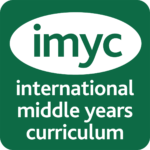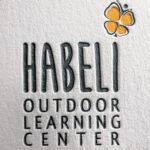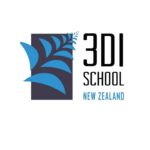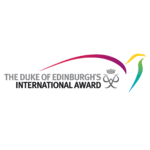Academia






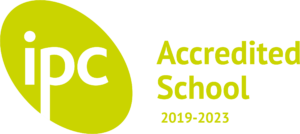
International Early Years Curriculum (IEYC)
The IEYC uses international best practices, holistic enquiry and play-based approaches that cover all curriculum areas including personal, social and emotional development for children aged 2 to 5 years old.

WHAT IS THE IPC?
The Primary International Curriculum (IPC)
The IPC is our International Primary Curriculum for children aged 5 – 11 years old. It is used by over 730 schools in 92 countries worldwide.
IPC provides a very clear process of learning and specific learning goals for every subject. It also develops international mindedness and encourages personal learning.
The teaching of the Arts Subjects (Art, Music, and Drama), Humanities (History, Geography) and Science are all linked to the IPC. This means that each term, a different Project is chosen and these areas approached via The IPC.

International Middle Years Curriculum:
A challenging, engaging, internationally-minded, concept-focused curriculum designed specifically for the unique learning needs for 11 to 14 year olds in lower secondary.

OUR CURRICULUM
Our main concern while developing the curriculum was to liven up the syllabus & provide a more meaningful education to the children than what is mandated by the current curriculum.
As children progress through the primary phase their primary education should not be compromised by the government standard agenda. We at Sanskriti International School encourage kind of learning which requires time for talking, problem solving and exploration of ideas as we realize that understanding and enquiry have come to be valued over memorization and recall.
Thus, our curriculum emphasizes the natural order of development in the child. We go beyond the subjects to understanding where our children come from, how the curriculum works in harmony with the child’s real interest, needs, learning pattern and finally how our curriculum can make the changes with the aim of raising new generation equipped to deal with the challenges of the global world. We are aware that in updating the curriculum regularly children are exposed to the recent methods of teaching. Therefore our curriculum is revised every year with regard to the changes taking place in education around the globe as well as in term of understanding of children.
Language Arts
The English Language Curriculum seeks to help children to:
- Clarify their own ideas and feelings
- Share their ideas and thoughts with others, orally as well as in print
- Use literary skills to derive information
- Develop a love for Literature
Science
- The science curriculum emphasizes the importance of allowing childrento express & develop curiosity about their surroundings.
- Instead of spoon feeding them with explanations & textbook lessons, children are encouraged to build their own theories based in evidence & experiments done in school
- This enables them to come up with their own explanation of how & why something happens. Instead of spoon feeding them with explanations & textbook lessons, children are encouraged to build their own theories based in evidence experiments done in school
Mathematics
Making mathematics student friendly is a challenge faced by many teachers especially with young minds.
- Our curriculum focuses on helping children build concept by involving them in mathematical activities.
- For example; children who are learning the skills of counting are given the opportunity to count a set of objects that can be moved as they count. This helps children to see the relation between the objects & the number, which is not possible when counting objects that cannot be moved.
- In this manner, children understand the concept of math as they work with model and objects.
ICT
ICT is a compulsory subject in the school and computer labs offer a lot of scope for all children to acquire hands-on training. Computer education begins at an early age. In the lower classes, computers are used as a means to learn other subjects. The computer labs also facilitate senior students to acquire programming skills. The school has a computer lab which is well-equipped with the latest hardware and software in an elaborate network system. In addition, the school also has a wide collection of interesting and educational CDs on a variety of subjects.
Social Study
- Our social studies curriculum aims to help children see themselves as members of a society in which people have rights & responsibilities.
- We believe in calculating civics education which needs to be larger than Nepal’s civics syllabus, which basically requires students to learn facts about their country.
- We are careful to identify the curriculum & include civil behavior & values by introducing ways in which this is done.
- Field trips & opportunity to find information are some of the ways to ensure that children understand by experience.
Learning Environment
Environment-friendly classrooms, laboratories, activity rooms, etc. are designed for greater efficiency, and to protect children of tender ages from air and noise pollution in our much polluted town. It also provides our wards an environment equal to the best anywhere in the world. An optimum teacher-student ratio ensures individual attention to the pupils. Our pupils are encouraged and guided to develop their analytical and problem-solving skills. Special tutorial/remedial teaching both during and after school hours is arranged according to the need of each child.
Student Participation
The morning assembly is conducted by each House in rotation once a week, which give each student an opportunity to participate. This develops the oratory skills and confidence. The cultural show put up for the Annual Day as well as the Sports Day too have a hundred percent participation. The Annual Art Exhibition, Science Week, Computer Week and Holiday home work display give every student a platform to exhibit his or her work.
Character Education
- A very important component of the balanced learning curriculum.
- Understanding concepts like friendship, generosity and honesty is at the heart of culture at Sankriti.
Sports Arts and Music as part of curriculum
- Swimming is a compulsory subject
- Dance and Music for different age groups
- Exposed to various art forms from painting to pottery
- Instructional programs in basketball, soccer, martial arts, gymnastics, swimming, cricket, tennis, badminton and volleyball


